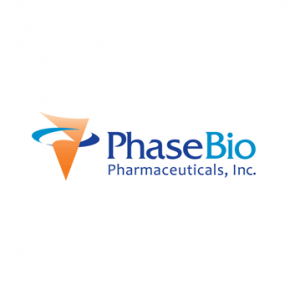PhaseBio Raises $40 Million to Advance Clinical Trials for Duchenne’s and Becker’s Diseases

 PhaseBio Pharmaceuticals, Inc., a leading company in biopolymer-based drugs developing treatments to address metabolic and specific cardiopulmonary disorders, recently announced that a $40 million financing round led by AstraZeneca has been closed. This investment from AstraZeneca, Hatteras Venture Partners, New Enterprise Associates and Johnson & Johnson Innovation – JJDC and Fletcher Spaght Ventures will serve to enable the advancement of the Vasoactive Intestinal Peptide (PB1046) into a different Phase 2a trial to address heart failure and cardiomyopathy in both Duchenne and Becker muscular dystrophy and of PhaseBio’s insulin (PE0139) into a Phase 2a trial to address type 2 diabetes.
PhaseBio Pharmaceuticals, Inc., a leading company in biopolymer-based drugs developing treatments to address metabolic and specific cardiopulmonary disorders, recently announced that a $40 million financing round led by AstraZeneca has been closed. This investment from AstraZeneca, Hatteras Venture Partners, New Enterprise Associates and Johnson & Johnson Innovation – JJDC and Fletcher Spaght Ventures will serve to enable the advancement of the Vasoactive Intestinal Peptide (PB1046) into a different Phase 2a trial to address heart failure and cardiomyopathy in both Duchenne and Becker muscular dystrophy and of PhaseBio’s insulin (PE0139) into a Phase 2a trial to address type 2 diabetes.
PB1046 is a recombinant form of the human hormone and peptide Vasoactive Intestinal Peptide (VIP); VIP stimulates the biological pathways relevant for the regulation of both immune and cardiopulmonary systems. Both compounds use the Elastin-Like Polypeptide (ELP), PhaseBio’s proprietary technology, to provide more stability and longer half-life in circulation without losing potency in comparison to the native sequences.
“The investment from AstraZeneca, together with our existing investors, provides PhaseBio with a great deal of operational flexibility and resources to advance PE0139 into a Phase 2a study, as well as to initiate Phase 2a trials of PB1046 for acute heart failure and for cardiomyopathy in Duchenne and Becker muscular dystrophy patients. Given the broad potential for PB1046 to treat both heart failure and orphan diseases, we have the flexibility to either develop and launch the product on our own or in collaboration with a partner,” noted Jonathan Mow, PhaseBio’s CEO, in a press release.
[adrotate group=”3″]
PE0139, also funded by this $40 million investment, is a long-acting, first-in-class and fully native basal insulin designed to be administered once per week through the subcutaneous route; it can be used as monotherapy or in combination with different treatments for type 2 diabetes. “AstraZeneca is committed to bringing innovative treatments to improve the life of diabetic patients. The ELP technology developed by PhaseBio might offer to patients the opportunity to manage their diabetes by injecting once-weekly, long-acting basal insulin,” concluded Gutch.






